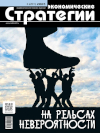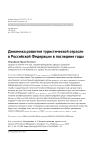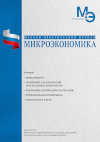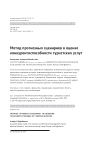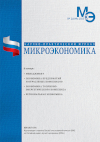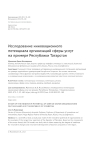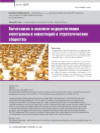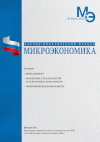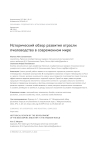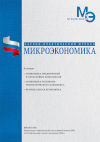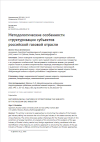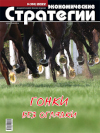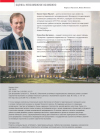Economic Strategies for University Campuses Functioning and Development
DOI: 10.33917/es-3.201.2025.136-144
The article dwells on priorities and effects of creating and developing university campuses in the leading regions of the Russian Federation. The area of results application — recommended measures within the framework of implementing key economic strategies can be reflected in the state management practice of regional development, given the improvement of educational process quality on campuses. Scientific novelty lies in structuring the best regional practice of creating campuses for their successful development in the Russian university education system. Conclusions – maintaining economic balance of interests between state priorities in the field of university education and target guidelines for involving investors’ funds in projects of creating campuses in the regions of Russia serves as a tool for more effective stewardship of resources for managing regional potential in order to achieve technological sovereignty in the country.
References:
1. Maksimova K.A., Korenev V.I. Gradostroitel’nye aspekty razmeshcheniya universitetskikh kampusov v g. Tomske [Urban Planning Aspects of University Campuses in Tomsk]. Vestnik Tomskogo gosudarstvennogo arkhitekturno-stroitel’nogo universiteta, 2022, vol. 24, no 1, pp. 137–149.
2. Natsional’nyy proekt “Nauka i universitety” [National Project “Science and Universities”]. Minobrnauki Rossii, available at: https://minobrnauki.gov.ru/nac_project/
3. Postanovlenie Pravitel’stva RF ot 29 marta 2019 g. N 377 “Ob utverzhdenii gosudarstvennoy programmy Rossiyskoy Federatsii ‘Nauchno-tekhnologicheskoe razvitie Rossiyskoy Federatsii’” (s izm. i dop.) [Decree of the Government of the Russian Federation No. 377 dated March 29, 2019 “On Approval of the State Program of the Russian Federation ‘Scientific and Technological Development of the Russian Federation’” (with amendments and additions)]. Garant, available at. https://base.garant.ru/72216664/
4. Procampus [Website]. URL. https://prokampus.rf/campus/view?id=5
5. Belitskaya A.V., Kukharenko L.V. Kompleksnoe razvitie territorii kak pravovoy instrument gosudarstvenno-chastnogo partnerstva [Integrated Development of the Territory as a Legal Instrument of Public-private Partnership]. Yurist, 2023, no 2, pp. 27–32.
6. Lysov P.G. Organizatsionno-ekonomicheskiy mekhanizm funktsionirovaniya mezhvuzovskogo kampusa [Organizational and Economic Mechanism of Functioning of the Interuniversity Campus]. Kreativnaya ekonomika, 2022, vol. 16, no 12, pp. 5005–5024, DOI: 10.18334/ce.16.12.116651
7. Kicherova M.N., Kyrov D.N., Shelemekha K.S. Na puti k mezhvuzovskim kampusam: zelenoe deklarirovanie i real’nye ekologicheskie praktiki studencheskoy molodezhi [On the Way to Interuniversity Campuses: Green Declaration and Real Environmental Practices of Students]. Vysshee obrazovanie v Rossii, 2023, vol. 32, no 11, pp. 77–94, DOI: 10.31992/0869-3617-2023-32-11-77-94
8. Leyman E.N., Lozenko V.K. Mekhanizmy povysheniya investitsionnoy privlekatel’nosti imushchestvennogo kompleksa vuza i puti ikh formirovaniya [Mechanisms for Increasing the Investment Attractiveness of the University’s Property Complex and Ways of Their Formation]. Nauchnyy zhurnal NIU ITMO. (Seriya: Ekonomika i ekologicheskiy menedzhment). 2019. № 1. S. 102–111.


